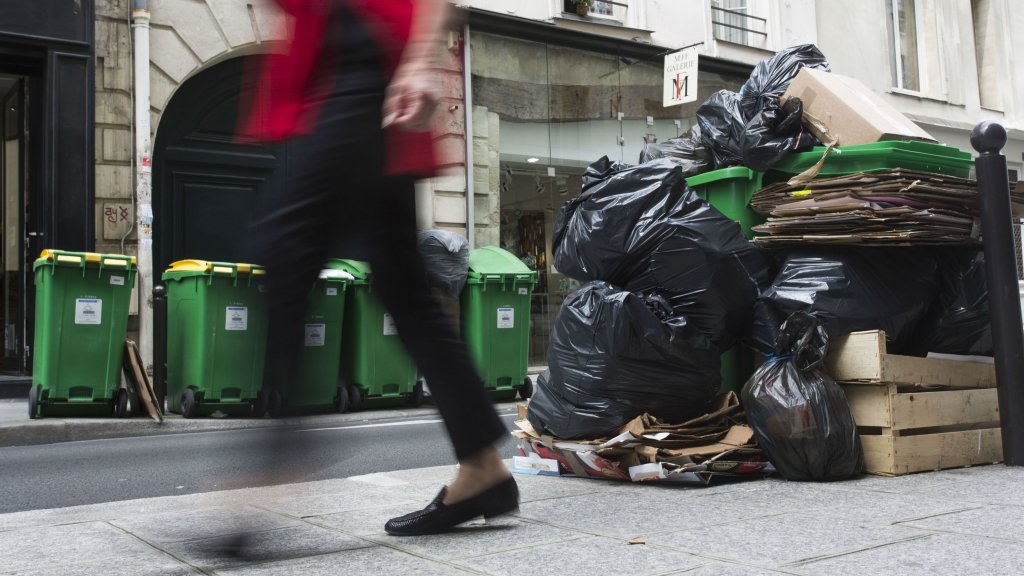MSW waste is an abbreviation that has arisen relatively recently. Somewhat earlier in the conversation, as well as in the documents, this type of waste was referred to as solid waste (solid biological waste).
In addition to changing the abbreviation and list of MSW waste, the Federal Law amended the methods of waste disposal. We will talk more about everything in the article.
What it is?
Solid municipal waste - transcript of MSW waste. The concept was officially established by the Law of the Federation dated December 29, 2014 No. 458-FZ.
Based on the content of this federal law, MSW is all those wastes that are generated and accumulated in residential premises as a result of human activities, as well as consumer goods that have lost their shelf life. Also, legislation related to solid waste of communal life garbage, which is formed as a result of the activities of legal persons, individual entrepreneurs.
Thus, we can conclude that MSW is the garbage that is generated as a result of human activities, enterprises and organizations.
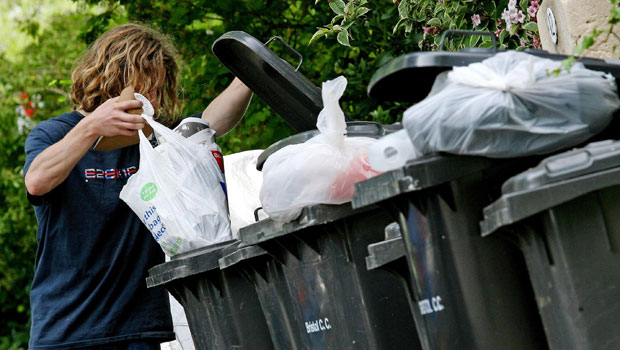
Varieties of MSW
Wastes related to MSW are divided into 2 categories:
- biological - those that are also called garbage;
- non-biological - ordinary household waste.
Therefore, solid municipal waste includes most of the municipal waste. Biological MSW is food and vegetable waste, bones, etc. Non-biological waste is synthetic waste (glass, plastic, cellulose, textiles, polyethylene, etc.)
Differences from MSW from MSW
MSW - municipal solid waste. MSW - solid biological waste. The first concept officially, according to the established law, supplanted the second. Therefore, solid waste remains only in colloquial speech, it no longer appears in the documentation.
MSW waste is a broader concept than household waste. The thing is that MSW includes not only waste that is regularly removed from residential buildings and apartments, but also garbage that accumulates in offices and enterprises during the working day.
MSW and MSW have the same meaning, so it’s okay for an ordinary person to mix up these 2 concepts. These abbreviations are important for enterprises and organizations involved in the collection and disposal of garbage near residential buildings and industrial buildings. After all, these enterprises work with documentation that exclusively deals with MSW reduction.
Prior to the Federal Law No. 438, payment for garbage collection consisted of the status of the premises - residential or non-residential, as well as the number of square meters. After the entry into force of this law, payment for the garbage collection service depends on the status of the consumer - an individual or a legal entity.
The fact is that ordinary residents of apartments and houses accumulate and take out much less garbage than that obtained from enterprises and offices. Of course, the payment of the first will be much less than the second.
Thus, MSW and MSW are almost equivalent concepts. Only the first remained conversational, and the second appears in documents and reports.
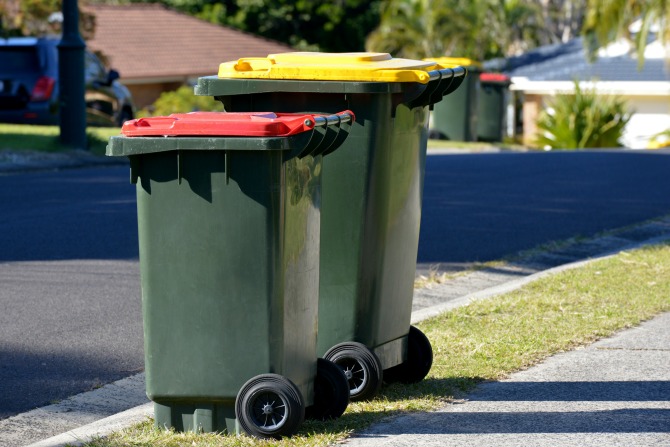
What wastes belong to MSW in the FWCC?
A whole section is devoted to the MSW waste in the Federal Classification Catalog. In block number 7 you can find the categories to which this or that type of garbage.
7 (30 000 00 00 0) is the catalog number dedicated to municipal solid waste. Next, we’ll provide an “extract” from the FCCW, which lists the main types of garbage:
| 7 31 110 01 72 4 | unsorted waste from apartments |
| 7 31 110 02 21 5 | bulky waste from apartments |
| 7 31 200 01 72 4 | trash and swept dirt collected from the streets |
| 7 31 200 02 72 5 | garbage collected after cleaning park areas |
| 7 31 200 03 72 5 | estimates and rubbish collected from public flower beds and cemeteries |
| 7 31 205 11 72 4 | Estimates collected near road curbs |
| 7 31 211 01 72 4 | waste from snow grids |
| 7 31 211 11 39 4 | snow removal of equipment for melting snow with a higher content of SiO2 |
| 7 31 300 01 20 5 | the remains of plants with lawns and flower beds |
| 7 31 300 02 20 5 | the remains of plant nature after sawdust trees, cutting bushes |
| 7 33 100 01 72 4 | litter from office premises, small |
| 7 22 100 02 72 5 | rubbish from office and domestic premises, which is practically not dangerous |
| 7 33 151 01 72 4 | garbage from floating vehicles not intended for the transport of people |
This is not an exhaustive list of MSW waste from the FCW. But after viewing a short excerpt from the catalog, you can see many repetitions with minor refinements. There is no significant difference in this, except for differences in hazard categories.
Some types of MSW also apply to some other sections of the classification catalog: Section No. 4, Industrial and Non-Industrial Consumption Wastes.
Collection rules
MSW waste is garbage that is subject to certain treatment rules. All these rules are spelled out in the official document "On the treatment of MSW" dated 12.11.2016 No. 1156.
MSW waste management: collection, removal, disposal is carried out by a specially appointed regional organization, which is fully responsible for the actions taken.
Places for collecting garbage from residential premises are stated in the contract concluded with such a regional organization. Most often, waste collection is carried out:
- in containers or disposable packages provided by this regional organization;
- in containers, bins or other large containers placed on a specially designed area on the street;
- in garbage collection chambers located in residential buildings.
This applies to medium-sized waste. Oversized are assembled in the following places:
- in special bunkers located on the sites;
- in a designated area.
The main thing when observing the rules of treatment is the separation of waste from hazard classes 1 and 2 from safe.
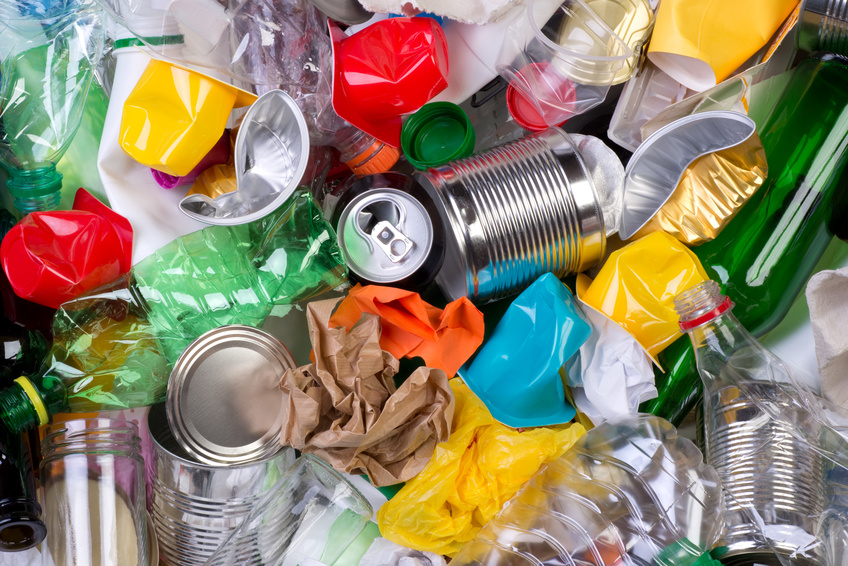
Disposal Methods
There are several ways to get rid of municipal solid waste:
- burial place;
- burning;
- composting;
- recycling.
Burial place
MSW disposal is the most financially beneficial way to dispose of garbage. It is financially beneficial, but detrimental to the environment, since many types of MSW do not decompose at all, or it will take several tens, or perhaps hundreds of years. In addition, burial requires the use of vast territories of the earth. For this, a special landfill is assigned for burial.
Landfills must be located behind residential areas, as well as away from water protection, recreational, medical and preventive, park areas.
Some recycled and buried waste can emit hazardous gas that can harm the environment. Such landfill gas must also be collected and disposed of.
Thus, we can conclude that disposal has only one advantage over other methods of MSW disposal - cheapness.
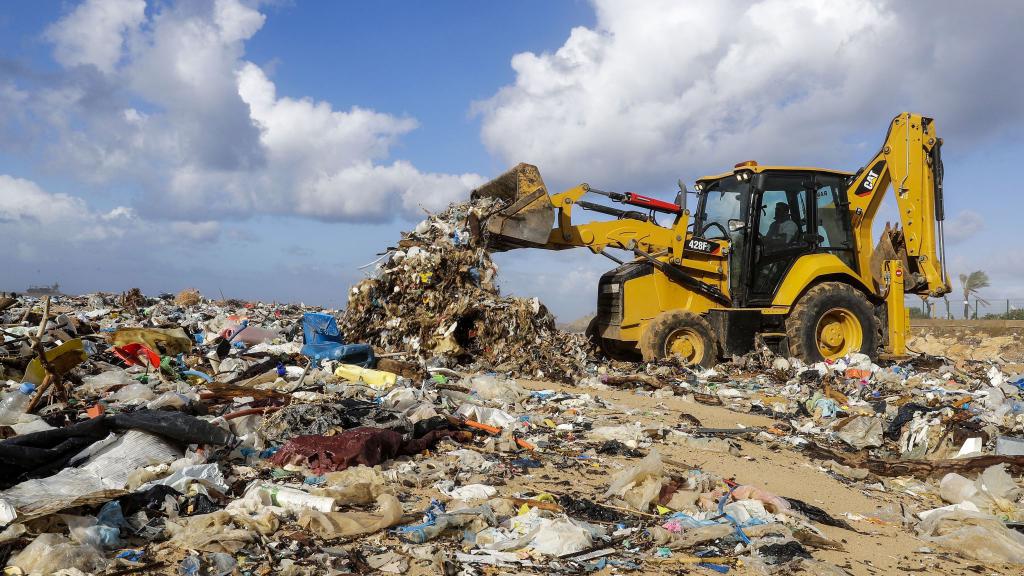
Burning
Waste incineration of MSW is the most common method of disposal. After burning the garbage, only ash remains, which is easier to eliminate than the original type of municipal solid waste.
The disadvantage of burning is that a large amount of harmful and even dangerous substances is released into the atmosphere during combustion. Therefore, the process of disposing of a huge amount of garbage in this way in the open is prohibited. To do this, use special furnaces that have the function of neutralizing the released gases.
The advantages of this method of MSW elimination include small financial costs, as well as the fact that after burning, there is nothing left from the garbage except ash, which is easy to eliminate.If it is rational to approach the process of burning waste, then the generated heat can be used to obtain heating and / or electricity.
One of the methods for the safe burning of garbage is developed - pyrolysis. Its essence is the thermal elimination of waste, but without the presence of air. Such images in the process are not formed and no harmful gases and fumes are emitted.
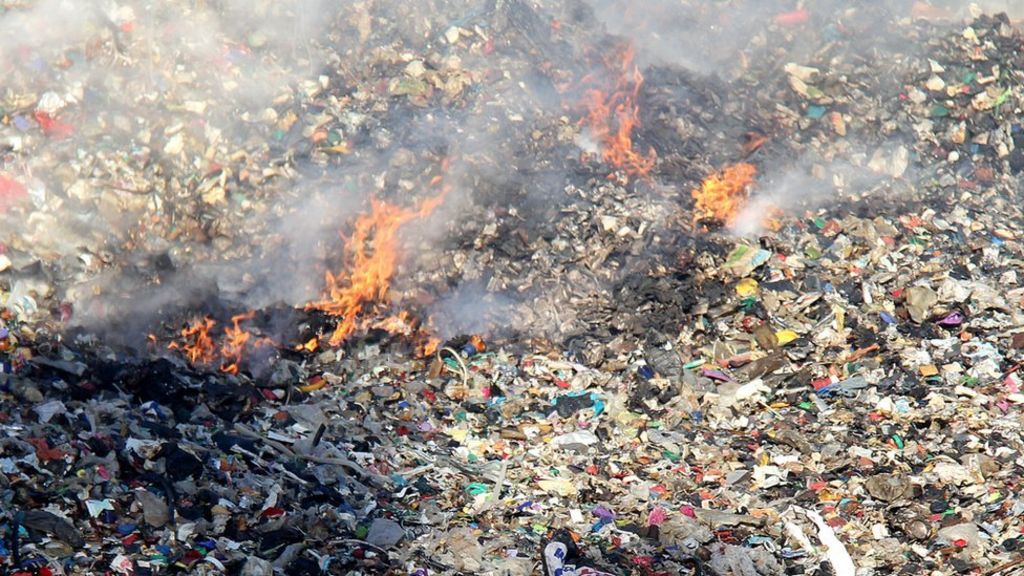
Composting
Composting is only applicable to plant or food waste, since composting is nothing but decomposition. Organic waste collected together is exposed to microorganisms, which by their activity turn the waste into compost.
Compost is considered the best type of fertilizer, because it consists exclusively of organic raw materials. This type of fertilizer is widely used in agriculture.
For composting MSW, a piece of land remote from residential areas is allocated, where there is a lot of moisture and shade, and there is also the possibility of removing excess moisture.
Judging by the advantages of this method, there are several of them:
- environmental safety;
- cheapness;
- getting fertilizer useful for agriculture;
- improving the condition of the land on which the composting process is carried out.
There are few disadvantages:
- allocation of a large area of land;
- unpleasant odor released during decay.
Using composting, it is possible to safely dispose of 35% of the total amount of MSW. But in order for this recycling process to proceed unhindered, it is necessary to sort the organic waste from the synthetic. For this, in some yards separate containers for plastic, glass, etc. are installed. In Europe, this has been practiced for a long time.
In Russia, an active collection system for used batteries, old bulbs, and used mercury thermometers is active.
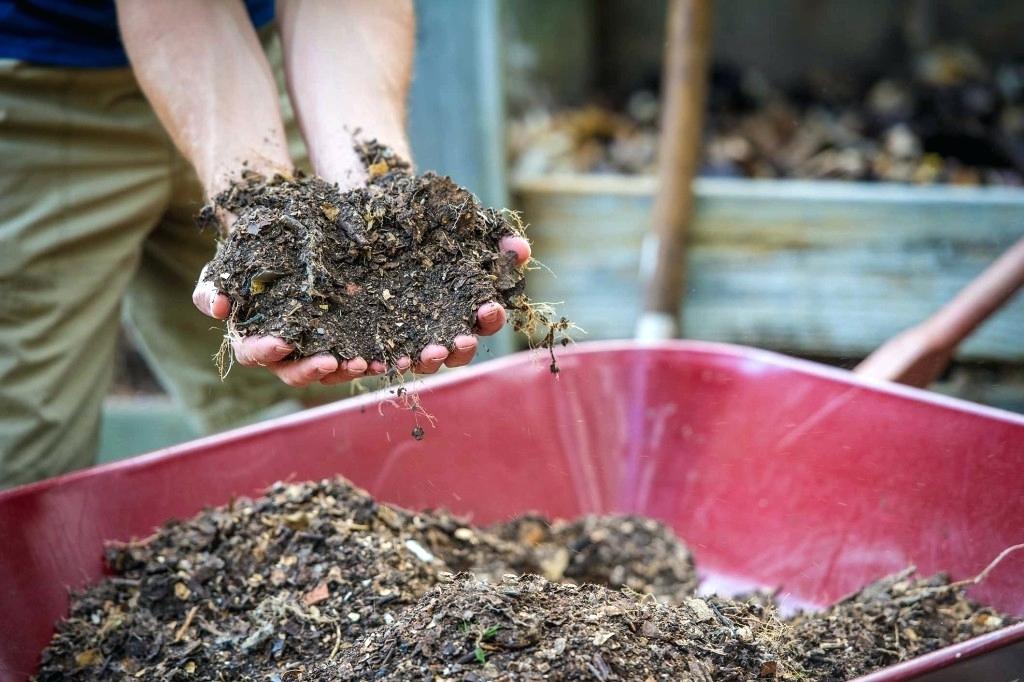
Recycling
Some MSW wastes are able to find a second life. For this, a recycling method such as recycling is used. This method allows not only several times to reduce the amount of waste, but also significantly save natural resources.
The following types of garbage are recyclable:
- ferrous and non-ferrous metals, which are sent under the press, and then for remelting;
- wood, which helps reduce tree felling;
- plastic, however, the recycling of this material is much more expensive than its primary production;
- glass, which is used as a recyclable material in construction;
- oil products (oils, asphalt);
- waste paper, which is used to make new paper
- used electronics.
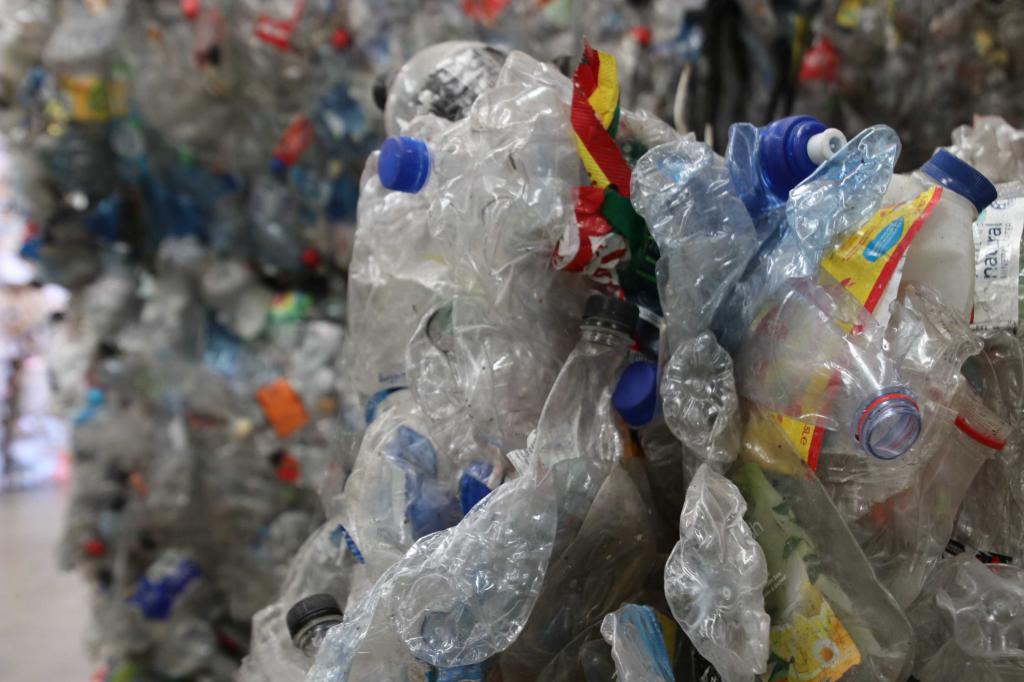
Hazard Class
The overwhelming majority of wastes related to MSW have 4 and 5 hazard classes. Class 5 includes the most environmentally friendly garbage, and class 4 is low-hazard.
When disposing of the 5th class of garbage, no official confirmation and compilation of a passport for garbage is required. This type of MSW waste includes saw cuts and tree-houses, bush branches, leaves, and garbage collected from park and alley zones. All this can be taken out and liquidated without licenses and other documents.
